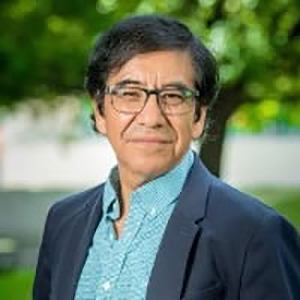In singular optimal control problems, the control is not explicitly defined by the optimality conditions. As a consequence, both direct and indirect methods may fail to find a proper solution. This situation is common when optimizing the operation of some process systems, such as batch and continuous reactors. Some direct strategies that rely on regularization and rigorous or heuristic mesh refinement have been recently proposed.

In this work, a simple but flexible nonlinear programming formulation is presented, with moving finite elements based on an indirect approach. It is shown that, despite previously reported drawbacks, indirect methods, when properly formulated, are efficient to solve challenging problems. The proposed formulation strictly satisfies the optimality and Weierstrass-Erdmann corner conditions at discrete points and provides accurate results with short CPU times. Heuristics or sophisticated regularization schemes are not required. Two sets of problems were solved to assess the performance of this strategy.
Dr. Antonio Flores-Tlacuahuac obtained a degree of Chemical Engineer from Universidad Autonoma de Puebla, a Master of Science in Chemical Engineering from Universidad Autonóma Metropolitana- Iztapalapa, and a Doctor of Philosophy (Chemical Engineering) from Imperial College of Science, Technology, and Medicine. All graduate studies were funded by Conacyt. He joined the Department of Chemical Engineering, Universidad Iberoamericana (Santa Fe) in 1994, where he remained until December 2015 as Full Professor.
In January 2016, Dr. Flores-Tlacuahuac began working in the Department of Chemical Engineering of the Tecnológico de Monterrey (Monterrey campus) where he is a member of the research group on energy and climate change. His lines of research refer to the application and development of methodologies for the modeling, simulation, design, optimization, and control of process systems. Among the most relevant contributions of his are works are optimal operation strategies in sequencing and simultaneous control of processes. Other important works refer to the modeling and simulation of polymerization reactors. He is currently developing optimal design strategies for biofuel production and energy efficiency in buildings.
Dr. Flores-Tlacuahuac has published 120 research articles in JCR level Q1 journals. He has directed 20 bachelors, 18 masters, and five doctoral theses. He has presented 43 national and 22 international talks. He was associate editor of the journals: Industrial and Engineering Chemistry Research (published by the American Chemical Society) and Latin American Applied Research.
Contact ND CBE department for Zoom link.